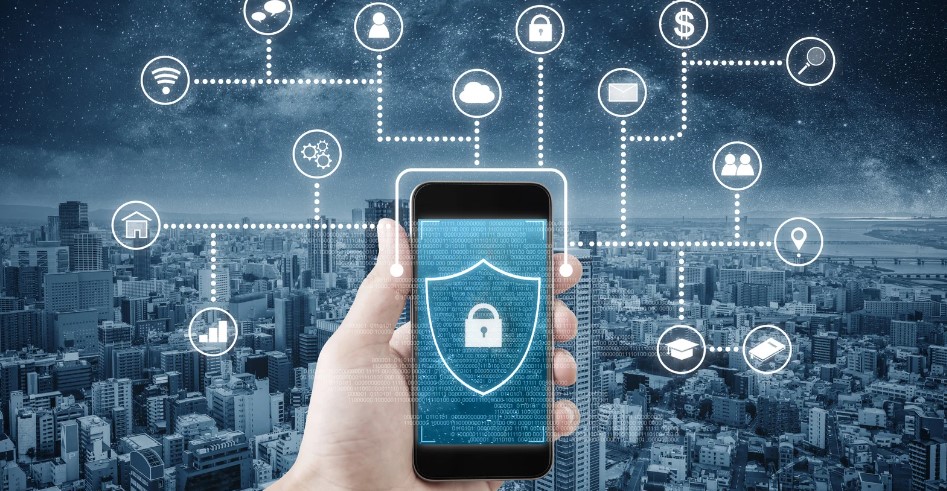The real impact of mobile devices on communication is most noticeable when they’re unavailable. The advantages and disadvantages of mobile technology have changed how businesses operate, making it crucial for companies to help employees work easily. Mobile technology enhances every part of business operations, leading to financial gains or strategic advantages.
The benefits of mobile technology in today’s workplace are many and varied. This article looks at the significant influence mobile technology has on businesses today. Here are some ways mobile technology can boost your business:
What is Mobile Technology?
Mobile technology refers to any device or system that allows people to access information, communicate, and perform various tasks while on the move. This includes smartphones, tablets, laptops, and wearable devices like smartwatches. Mobile learning technology enables wireless communication through cellular networks, Wi-Fi, Bluetooth, and other wireless methods. It allows users to make calls, send messages, access the internet, use apps, and perform many functions that were once only possible with desktop computers.
Mobile technology is a technology that you can take with you wherever you go. Examples include:
- Laptops, tablets, and netbook computers
- Smartphones
- GPS devices
- Wireless payment terminals
These devices use various communication technologies, such as:
- Wi-Fi: A wireless network for connecting devices locally.
- Bluetooth: For wireless connections between devices.
- Mobile data services: 3G, 4G, and 5G for internet access on phones.
- VPNs (Virtual Private Networks): Secure connections to private networks.
These technologies allow us to connect our mobile devices, such as phones and laptops, to our offices or the Internet while travelling or working remotely.
[Read More: Why AI is Bad for Education: Unveiling the Dark Side of Artificial Intelligence]
Advantages of Mobile Technology
Let’s look at some key benefits of mobile technology. There are many, but we’ll focus on a few main ones.
Easy Communication: The biggest advantage of mobile technology is easy communication. You can talk to anyone, anywhere in the world. With 5G phones, you can stay connected on the go. Video calls let you see your loved ones, not just hear them.
Capture Precious Moments: In the past, taking pictures was a hassle, needing a separate camera. Now, mobile phones come with high-quality cameras. You can quickly take photos and videos anytime, anywhere. Selfie cameras also make it easy to capture memories for personal or professional use.
Promote Business: Promoting your business is easy with mobile phones. Social media and digital marketing are mostly done online now. You can run campaigns, attend meetings, and monitor security cameras from your phone—all from the comfort of your home.
Stay Entertained: Mobile technology keeps you entertained wherever you are. You can travel long distances without getting bored by browsing social media, streaming movies, listening to music, or playing games. Your phone puts the world in your hands.
Educational Purposes: Mobile technology also helps with education. Many apps make learning fun for kids. College students can keep their assignments and notes on their phones, studying on the go.
[Read More: Unlocking the Potential: Generative AI in Higher Education]
Disadvantages of Mobile Technology
While mobile technology has many benefits, it also comes with some drawbacks. Let’s look at a few of them.
Distracting Device: Mobile phones can be very distracting. It’s hard to focus when you have a phone in your hand, especially with the latest 5G phones. Social media notifications and text messages constantly grab your attention. Many people find it difficult to stop playing online games on their phones.
Health Issues: Using a mobile device constantly can lead to health problems. Staring at the screen for long periods can damage your eyesight. The electromagnetic radiation from phones and towers can be absorbed by the body, potentially causing various health issues.
Security and Privacy Issues: Many apps on your phone require personal and login information. Some companies sell this data for marketing purposes, leading to security threats. There’s also a risk of hacking your phone, which can compromise your data and privacy.
Key Benefits of Mobile Device Management (MDM)
Mobile device management (MDM) offers several benefits, particularly in organizational settings where managing multiple mobile devices is crucial. Here are some key advantages:
- Enhanced Security: MDM allows organizations to enforce security policies such as encryption, password requirements, and remote data wipe, ensuring sensitive information remains protected.
- Increased Efficiency: It streamlines device provisioning, configuration, and updates, reducing IT workload and minimizing downtime for employees.
- Better Control: MDM provides centralized control over devices, applications, and data, enabling IT teams to manage and monitor devices effectively from a single console.
- Compliance and Policy Enforcement: This function helps organizations enforce compliance with regulatory requirements and internal policies regarding data access and usage.
- Cost Savings: MDM can lead to significant savings over time by optimizing device usage and reducing maintenance and support costs.
- Improved Productivity: Ensures that employees have access to necessary applications and resources on their devices, enhancing productivity and collaboration.
- Remote Management: This function facilitates troubleshooting, updates, and support remotely, reducing the need for on-site visits and minimizing disruptions.
- Support for BYOD (Bring Your Own Device): Allows organizations to securely integrate personal devices into the workplace environment while maintaining control and security.
These benefits make mobile device management a critical tool for organizations looking to manage and secure their mobile device deployments effectively.
Conclusion
Mobile technology offers numerous benefits, such as easy communication, business promotion, and entertainment. However, it also has drawbacks like distractions, health issues, and security risks. Balancing these advantages and disadvantages is key to maximizing the benefits while minimizing the potential downsides. Understanding both aspects helps in making informed decisions about mobile technology use.
FAQs
Advantages: Portability, connectivity, convenience.
Disadvantages: Distraction, dependency, privacy concerns.
Advantages: Advanced features, apps for productivity, enhanced connectivity.
Disadvantages: High cost, potential for addiction, security vulnerabilities.
Connectivity, convenience, and portability.
Calls, text messaging, internet browsing, social media, navigation/GPS, photography, banking, gaming, calendar/organizer, and entertainment (music/videos).
Advantage: A benefit or positive aspect.
Disadvantage: A drawback or negative aspect.





